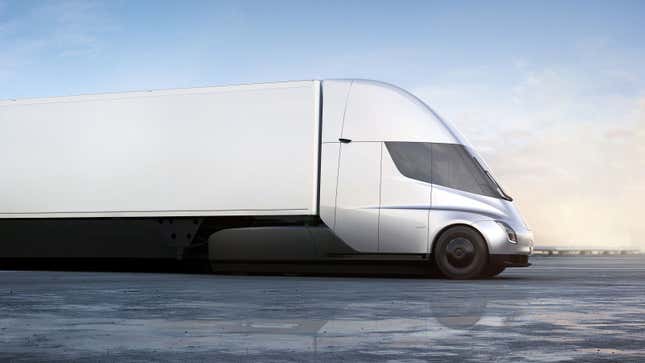
Tesla CEO Elon Musk announced the electric automaker’s Tesla Semi truck project has been pushed back again while the company manages and overcomes the current covid-19 outbreak. But the delay comes right as the trucking industry proves its value.
I wouldn’t say anyone was ever questioning the value of the trucking industry prior to the outbreak of covid-19. But thanks to the sudden reliance on our country’s trucking infrastructure for emergency supplies, it suddenly has more attention than it’s used to.
That lack of attention is what’s primed the trucking industry for the same electric revolution as commercial cars—and that’s exactly what Tesla aims to do with the all-electric Semi. At least, eventually.
As part of the first quarter earnings report, Tesla delayed production of the Semi again, moving it first from 2019 to 2020, and now to 2021.
How great would it have been for Tesla to get this promise right, and at the very least have a small fleet operating for Walmart or some other company already. The chance to have electric trucks delivering emergency supplies in a crisis, right as the oil industry begins the heaves of collapse, likely would have sealed a future for electric trucking. Or if you feel that fate is already sealed, it likely would have sped up the change.
No direct reason was given from Tesla, but pushing it back likely won’t hurt the new Model Y crossover’s production demand as it ramps up, as well as making up for lost time after the covid-19 delay.
It’d be impossible to ignore how far Tesla has come. I talked about it at the end of the decade last year. And if they did make the trade-off of delaying the Semi to start early production of the Model Y, ultimately that sounds like the smarter business decision and I can’t blame them.
But what a moment it’d be for the Semi right now, if it existed.